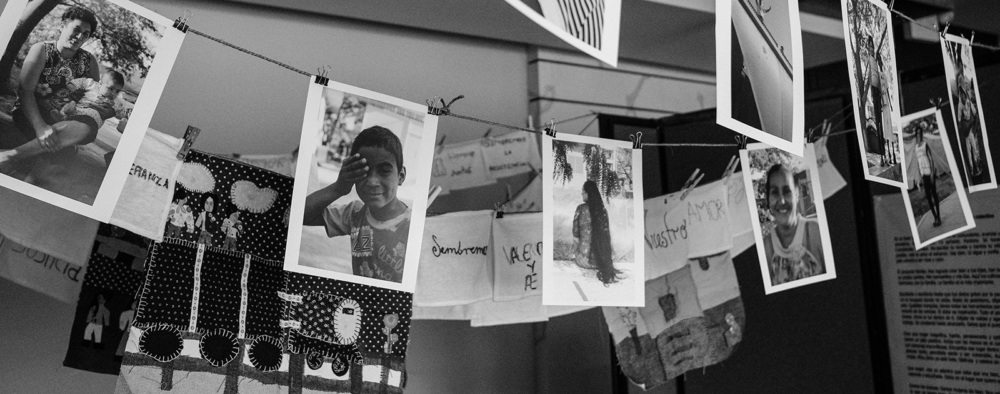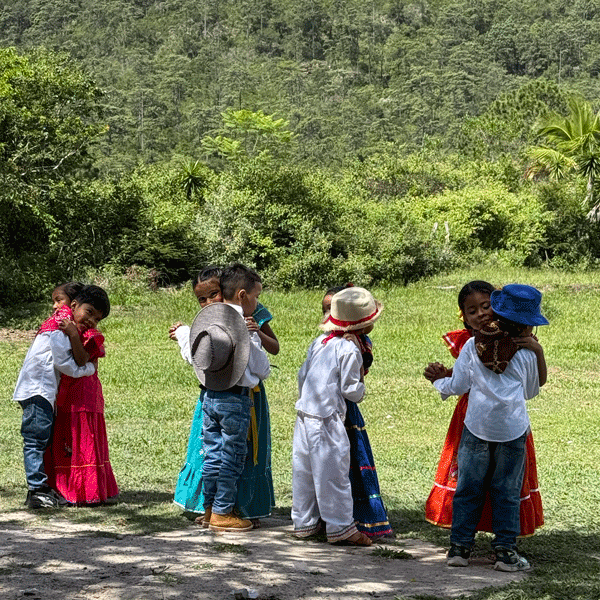
Education
Education, Gender justice, Safety and wellbeing, Youth power
I asked my global team of colleagues, What concerns you the most? What are your hopes for young people? From immediate effects to long-term consequences, these are their responses:
“I am worried about the children who are unable to articulate and share their worries. Many children are out of school and may not feel safe at home. The pandemic and its socio-economic pressures may escalate into frustration, violence, and worse.” – Hayley Roffey, Senior Director of Partnerships and Designated Safeguarding Lead, United Kingdom
More than 1.5 billion children are out of school as over 190 countries try to stop the spread of COVID-19 with school closures. For far too many children, school is an important escape from troubling situations at home. For others, their caregivers’ job loss, isolation, and potential sickness creates new stressors that amplify the risk of abuse during a time when children are cut off from protection systems and support networks.
Isolation is especially harmful for LGBTQ kids with families that do not know how to accept or support their gender identity and/or sexual orientation. Exposure to abuse and violence may lead to self-harm and has significant long-term consequences, impacting children’s lifelong health and wellbeing.
“I worry about the children whose parents have lost their incomes and now face food insecurity. I worry about the children who are wondering what will happen to them when the pandemic is over.” – Amé Atsu David, Regional Capacity Development Specialist, West Africa
As places of work shut down to respond to safety measures and economic loss, an estimated 200 million people may end up without work. Prior to the pandemic, nearly half of the word’s children depended upon school for a daily meal, according to the World Food Programme.
In addition to food insecurity, many families may now face eviction and foreclosures. Children living on streets with already immense vulnerability face increased danger of starvation. Many youth are at risk as they are more likely to be unemployed and work in the informal economy without access to safety nets.
[image_caption caption=”GFC partner Homies Unidos, based in Los Angeles, delivers food, diapers, and other essential supplies to families in need. © Homies Unidos” float=””]
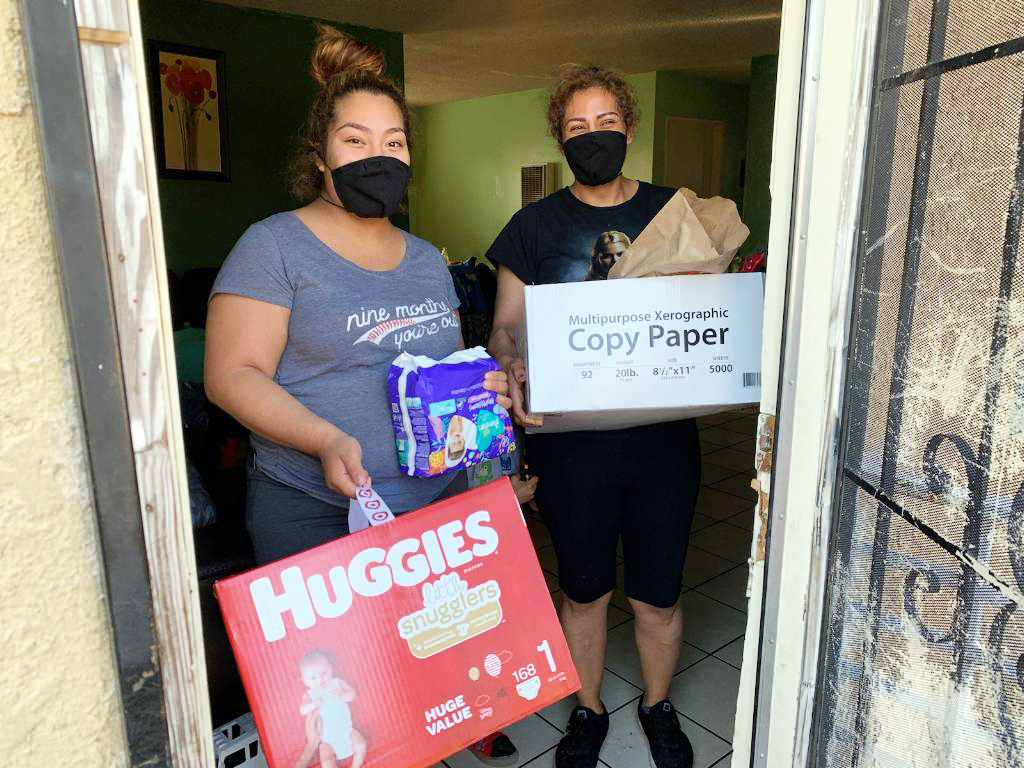
[/image_caption]
“I am worried about the children who cannot continue their education at home due to the circumstances within which they live. Inequalities will be stark and many children around the world will be at a huge disadvantage due to this time away from school.” – Hayley Roffey, Senior Director of Partnerships and Designated Safeguarding Lead, United Kingdom
Access to education has never been equal for all children, and the growing gap during the COVID-19 is alarming. Far too many children will remain without opportunities to learn during school closures due to lack of internet and remote learning tools.
Many young people who have overcome significant obstacles to attend school may not return to school as priorities shift to helping their families survive and caring for younger siblings. This is especially true for girls. With an estimated 743 million girls now out of school, girls are at greater risk for gender-based violence, early marriage, and harmful traditional practices that may lead them to drop out of school.
“I am worried that education of girls may be discontinued, especially in rural areas and urban slums, because parents will be pressured to get their daughters married at an early age. Traffickers will take this opportunity and lure the parents in the name of marriage to a prospective groom or job and then sell the girls for commercial sexual exploitation” – Indrani Chakraborty, Child Protection and Anti-Trafficking Specialist, India
As young people face economic insecurity, social isolation, unstable housing, and potential loss of caregivers, they are at serious risk of trafficking, sexual exploitation, and child labor. The United Nations has warned of the heightened risk of online predators as more students turn to digital learning and online social connection.
Public health crises and their socioeconomic impacts affect girls and women disproportionately: prior crises like the 2014-2015 Ebola outbreak demonstrate girls are at greater risk of gender-based violence and adolescent pregnancies. Lockdowns may erode progress made towards greater autonomy for girls, including their access to vital services, especially those that protect their sexual and reproductive rights. Our friends at With and For Girls are highlighting the devastating and widespread ways girls will be impacted by COVID-19 in this powerful blog series.
[image_caption caption=”In Honduras, GFC partner Un Mundo is providing health services to its community during the coronavirus pandemic. © Un Mundo” float=””]
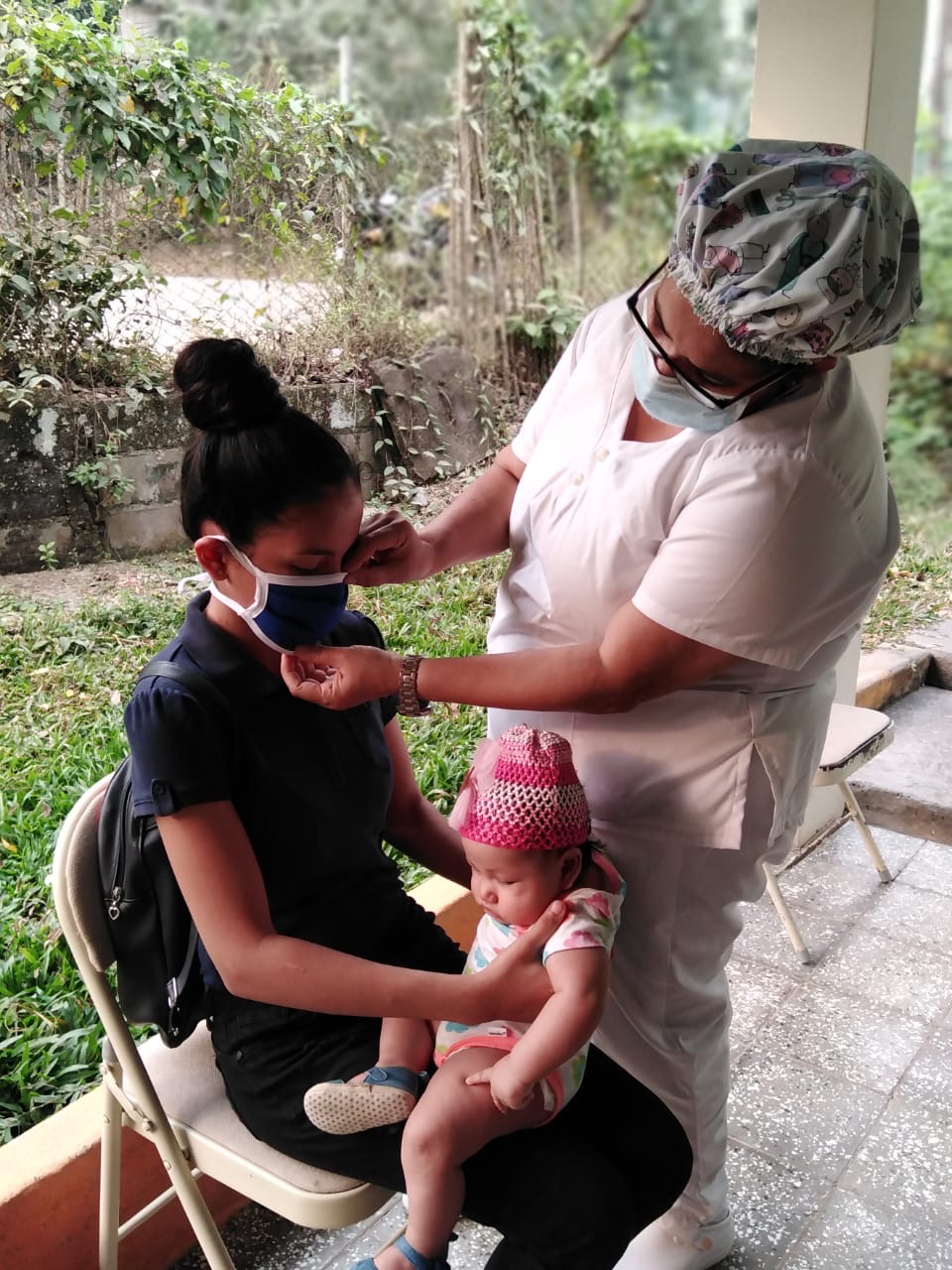
[/image_caption]
“The COVID-19 crisis may distort democracy as ruling powers might use the excuse of the health crisis to grant themselves more expansive powers. This may aggravate the already shrinking space for civil society and the role of citizens in development.” – Rituu B Nanda, Monitoring, Evaluation, and Learning Specialist, India
Many young people may be coming of age at a time when democracy and human rights are especially at risk. Emergency responses to COVID-19 that abuse power and restrict transparency, access to information, and online freedom are a threat to public health, the media, and civil society. It is more important than ever that young people can exercise their rights and participate in decision-making processes.
Local organizations like GFC partners around the world provide important space to exercise the right to association and freedom of expression. We hope young people are part of solutions against the pandemic and their communities’ long-term recovery.
[image_caption caption=”Youth from Prayasam, a GFC alumni partner in India, paint informative murals about COVID-19 prevention. © Prayasam” float=””]
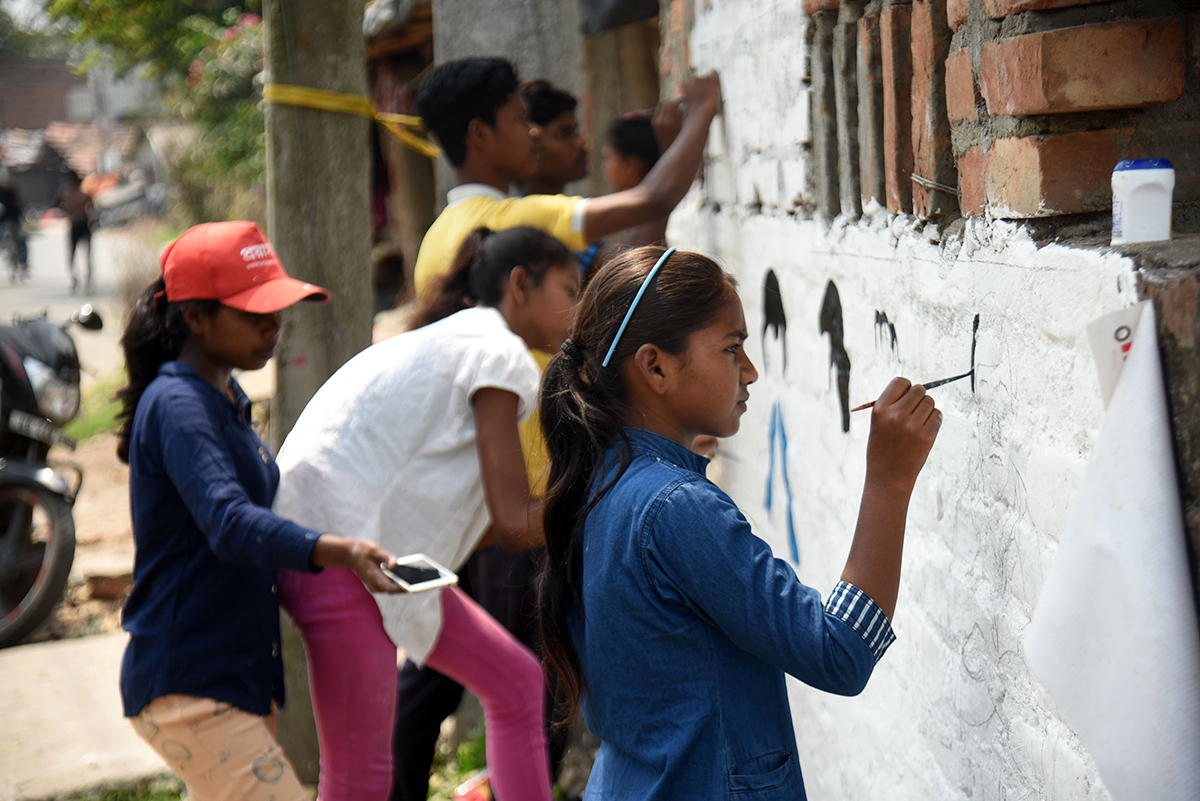
[/image_caption]
“I am worried because COVID-19 is compounding racism, injustice, and xenophobia, especially among migrant communities.” –Rodrigo Barraza, Program Officer for the Americas, Mexico
Young people from marginalized communities may face greater challenges during the pandemic, from pre-existing socioeconomic health disparities, to accessing treatment, to surviving a COVID-19 diagnosis.
Refugee and migrant children are among some of the world’s populations most at risk of the effects of COVID-19. An estimated 33 million children worldwide are migrants. Many families live without adequate access to safe water, sanitation, and healthcare in overcrowded camps or detention centers. Excluded from many governments’ health systems and safety nets, those who get sick may not access the treatment they need.
As fears about the virus intensify, it is all too easy for communities facing marginalization to become scapegoats and blamed for the spread of COVID-19. These fears for children are real, as has been witnessed already with hate crimes towards Asian Americans in the US, discrimination against Roma communities in Europe, and hostility towards migrants across the world.
“I am worried about the trauma that children and young people may experience, whether through fear, isolation, loss of family members, or increased exposure to violence, and that addressing this trauma may not be a priority.” – Corey Oser, Vice President of Programs, Washington, DC
The pandemic has disrupted children’s lives and their support systems, from extended family, friends, teachers, and local organizations like GFC partners. Children and youth may lose their parents, grandparents, or other primary caregivers without the chance to say goodbye. Children may not be able to access critical mental health resources that help them develop coping skills and build their resilience.
Many GFC partners have pivoted to tele-mental health and online spaces for social connection and community building. We find hope in knowing GFC partners and their rapid responses are caring for children and their communities.
Since the COVID-19 pandemic has unfolded, it is clear there will be disastrous consequences for children and youth, not only in the months to come but also in the years ahead. We are proud of our partners’ mobilization around the world to respond to children’s needs and engage youth in actions to protect their communities. We stand prouder knowing our locally-led, grassroots partners will be with communities throughout their recovery – advocating for children and their rights in far-reaching ways to counter the pandemic’s devastating effects on their potential.
Our final hope is our partners have the long-term, flexible support they need to adapt and remain resilient during this global crisis and beyond, helping to protect generations of young people.
Donate to support children affected by the coronavirus.
Header photo: © Jeff Valenzuela
